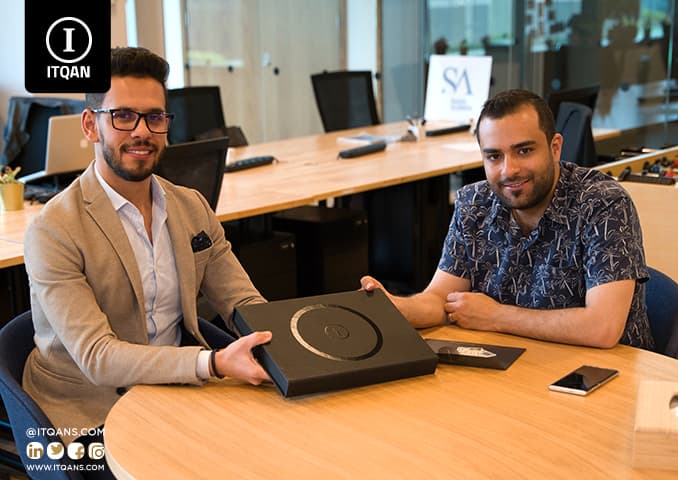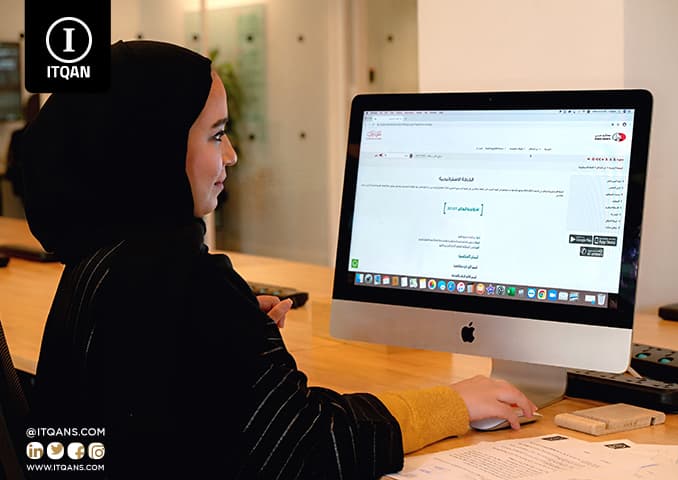What is the difference between a limited liability company and a solo company in Dubai? Establishing companies in Dubai comes with a variety of legal options that allow investors to choose the most appropriate structure for their business. Among these options, the Limited Liability Company (LLC) and the Solo Company stand out, which are two forms of companies that can be established in Dubai. Each of these types of companies comes with unique advantages and disadvantages related to legal liability, regulatory requirements, and business benefits. Choosing the right type of company depends on many factors including the size of the business, the type of industry, and the company’s future plans. Itqan is considered one of the leading companies in providing advice and support necessary to establish companies in Dubai, and helps investors understand the nuances between different types of companies to ensure optimal decision-making.
Limited Liability Company (LLC) is one of the most common legal structures for establishing companies in Dubai. This company is an excellent choice for investors who want to protect their personal assets from business risks. In this type of company, shareholders’ liability is limited to the amount of their capital contributions. This means that their personal assets are protected in the event that the company fails or gets into financial trouble. In addition, LLCs allow foreign investors to own up to 49% of the shares, while the remaining 51% must be owned by a UAE citizen or UAE company. This type of company requires specific legal and regulatory procedures and needs to be registered with the Dubai Department of Economic Development.
In the end, the difference between a limited liability company and a solo company. Choosing the right type of company depends on the business objectives, the amount of risk that can be taken, and the legal requirements. Itqan can provide the necessary consultation and assistance with incorporation procedures to ensure that the optimal structure for your business in Dubai is chosen in a smooth and efficient manner.

What is the difference between a limited liability company and a solo company in Dubai?
جدول المحتوى
ToggleAdvantages of establishing a company in Dubai
Dubai is considered one of the most prominent global destinations for establishing companies, thanks to its strategic location between Asia, Europe and Africa, advanced infrastructure, and flexible economic policies that encourage investment and business growth. Establishing a company in Dubai can be a strategic step to achieve success and prosperity in the business world. Dubai offers investors an attractive business environment characterized by political and security stability, a reliable legal system, and high transparency in commercial transactions. In addition, Dubai offers a wide range of benefits and opportunities for businesses of different sizes and sectors, making it an ideal destination for entrepreneurs and investors looking for new opportunities for growth and expansion. Collaborating with specialized companies such as Itqan can facilitate the incorporation process and ensure compliance with all legal and regulatory requirements, helping companies get up and running quickly and efficiently. Advantages of establishing a company in Dubai
- Stable economic environment: Dubai is considered one of the most economically stable cities in the region, providing an ideal environment for companies to grow and prosper. The local government supports foreign investment and provides incentives to attract international companies.
- Strategic location: Dubai is located in a strategic location linking the Asian, European and African markets, facilitating access to a wide range of global markets. This ideal location makes it a vital business center for companies looking to expand globally.
- Advanced infrastructure: Dubai has a world-class infrastructure that includes international airports, modern ports, and advanced highways. This infrastructure provides excellent logistical support to businesses and helps facilitate business operations.
- Tax incentives: Dubai offers a range of tax incentives, including full tax exemptions in some free zones. This helps companies reduce costs and increase profitability.
- Ease of legal procedures: Establishing a company in Dubai is characterized by ease of procedures and quick completion, thanks to the simplified and supportive legal system for business. The local government provides electronic services to facilitate procedures and reduce the time and costs associated with establishing companies.
Ultimately, setting up a company in Dubai offers endless opportunities for growth and success in an outstanding and supportive business environment. By collaborating with specialized companies such as Itqan, investors and entrepreneurs can achieve their business goals easily and efficiently, and benefit from the unique advantages that Dubai offers as a global business center.

Steps to establish a company in Dubai
Steps to establish a company in Dubai
Establishing a company in Dubai is considered a strategic step for many investors and entrepreneurs who seek to benefit from the thriving economic environment and advanced infrastructure in the city. Dubai, with its ideal geographical location linking East and West, and thanks to government policies encouraging business and investment, provides ample opportunities for growth and expansion. Establishing a company in Dubai can be the beginning of successful projects thanks to the great facilities provided by the government and the flexible legal systems that facilitate procedures. Whether you are thinking of starting a small or medium company or even a large company, Dubai offers a supportive environment in which to achieve your business goals. In this context, we will review the basic steps for establishing a company in Dubai , focusing on the legal procedures and requirements necessary to ensure your company is established successfully and efficiently. Steps to establish a company in Dubai
- Determine the type of business activity: The first step in establishing a company in Dubai is to determine the type of business activity you want to engage in. The type of business license you will need depends on the activity you choose, whether it is commercial, industrial, or professional.
- Choosing a legal company structure: Dubai offers several corporate structure options such as a limited liability company (LLC), a branch of a foreign company, a civil partnership, and others. Choosing the appropriate structure depends on the size of the business, the number of partners, and capital.
- Determine the company name: You must choose an appropriate name for the company that complies with the trade naming rules in Dubai. The name must not contain any inappropriate or religious words, and must reflect the nature of the business.
- Obtaining initial approval: After defining the business activity and choosing the company name, an application must be submitted to obtain initial approval from the Dubai Economic Development Department (DED). This approval is a necessary step before proceeding with further procedures.
- Preparing the articles of incorporation and agreements: The articles of association and agreements must be prepared between the partners if the company includes multiple partners. These documents must include the distribution of shares, rights and duties, and profit and loss ratios.
Setting up a company in Dubai can be an exciting and rewarding experience, opening doors to countless business opportunities in one of the most dynamic and prosperous cities in the world. By following the above steps and collaborating with consulting companies such as Itqan, you can ensure that your company is successfully established and takes advantage of the distinctive business environment that Dubai has to offer.

Learn the difference between an LLC and a limited liability company
After looking at the difference between a limited liability company (LLC) and a sole proprietorship in Dubai , it becomes clear that each offers unique advantages and disadvantages that investors must take into consideration when making their decision on the most appropriate legal structure for their business. A limited liability company is an ideal choice for investors seeking to protect their personal assets from business risks, as shareholders’ liability is limited to the amount of their capital contributions. This type of company is suitable for businesses that require multiple partnerships or participation, and provides an opportunity to benefit from foreign investment, provided that the required local ownership percentage is adhered to. Through Itqan Company, investors can obtain precise guidance and legal guidance that facilitates the process of establishing a limited liability company efficiently.
On the other hand, a solo company provides flexibility and ease of management for sole proprietors who want to operate their businesses independently. This type of company allows the owner the freedom to make decisions without the need for consultation or approval from other partners, which can speed up the decision-making and implementation process. However, investors should be aware of the risks associated with a sole proprietorship, as the owner is fully responsible for all debts and financial obligations of the company. This greater responsibility can be a drawback for individuals who prefer to minimize personal financial risk. Through the advisory support provided by Itqan, individual business owners can understand the finer details and legal requirements for establishing a Solo company, and ensure commercial success with minimal complications.
Depending on specific business objectives and financial needs, investors can choose the legal structure that best suits their future plans. Itqan provides in-depth expertise and knowledge of the legal and commercial system in Dubai, helping investors make informed decisions and establish their companies in a smooth and secure manner. Whether you are considering establishing a limited liability company or a solo company, Itqan can be the ideal partner to provide the necessary support and professional guidance to ensure the successful achievement of your business goals. By understanding the fundamental differences between these types of companies and utilizing specialized advice, investors can build a strong foundation for their business in Dubai and achieve sustainable growth and a bright future.
Frequently asked questions about the difference between a limited liability company and a limited liability company
What is a Limited Liability Company (LLC) in Dubai?
A limited liability company is a type of company where shareholders’ liability is limited to the amount of their capital contributions. This type of company requires a local partner who owns 51% of the shares.
What is the sole company in Dubai?
A solo company is a company owned and managed by one person. The individual owner is solely responsible for the business and all debts and financial obligations associated with it.
What are the main advantages of a limited liability company?
Advantages include protection of shareholders’ personal assets, the possibility of partnering with foreign investors, and enjoying some tax exemptions in free zones.
What are the main advantages of the Solo company?
The solo company is characterized by flexibility and ease of management, as there are no partners to be consulted, and quick decision-making. This type of company is suitable for sole proprietors.
What are the main disadvantages of a limited liability company?
Disadvantages may include initial capital requirements, the need for a local partner with a 51% equity stake, and costs associated with establishing and managing the company.
What are the main disadvantages of the Solo company?
The main disadvantages include the owner’s full liability for all debts and financial obligations, which increases personal financial risks, and a limited ability to attract large investments.
How to register a limited liability company in Dubai?
Registering a limited liability company requires submitting an application to the Dubai Department of Economic Development, submitting necessary documents such as passports, lease contracts, and business plan, in addition to obtaining the approval of a local partner.


















